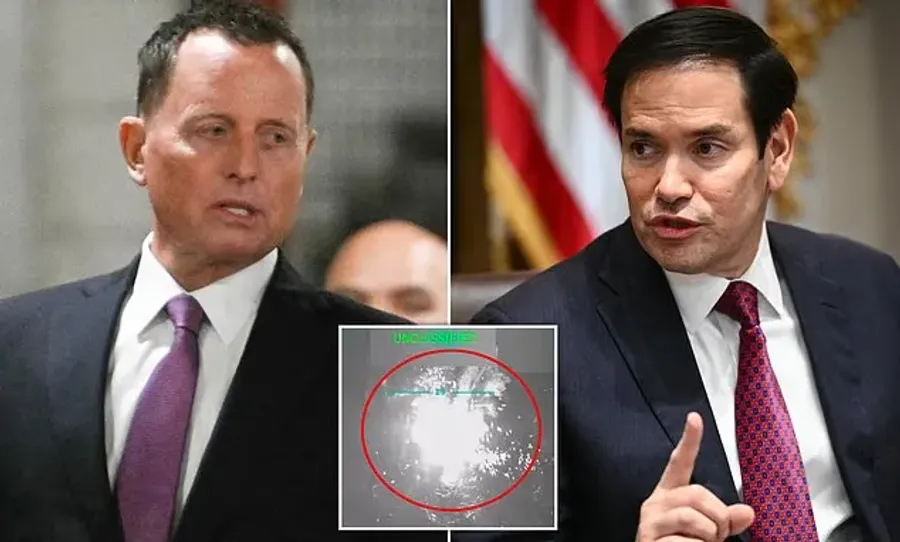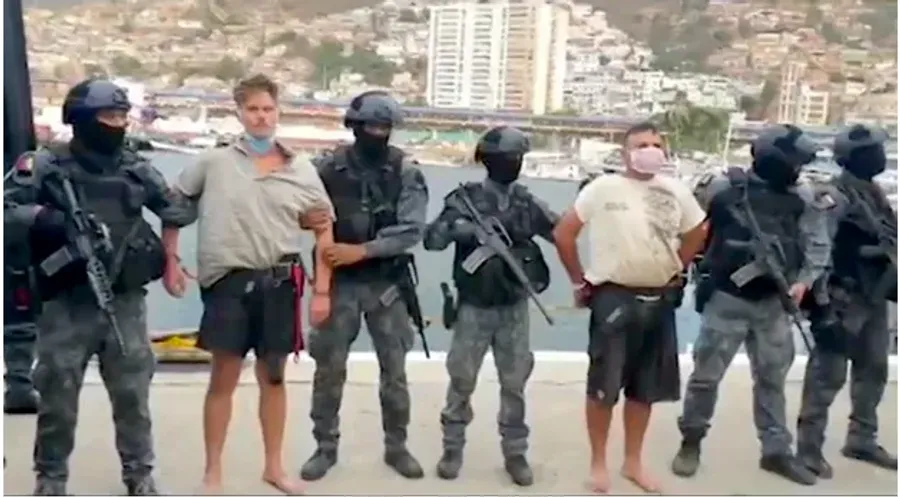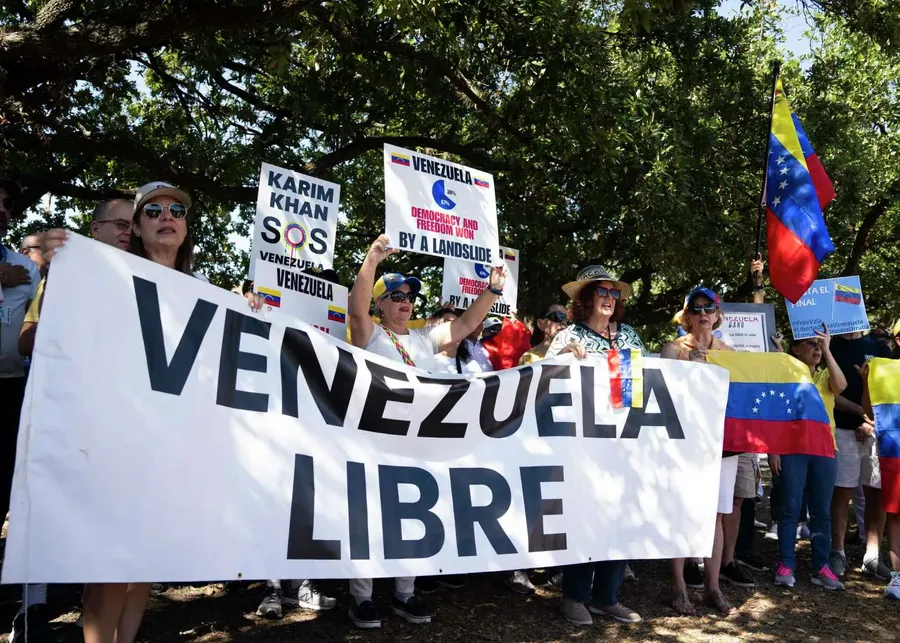The Venezuelan Question
by u/Case_Newmark
From the beginning of Trump's second term, Venezuela has been in his sights. In recent months, his administration has moved to escalate hostility with the Latin American nation, reaching a fever pitch as of late. Throughout the summer, the President has mobilized ships around the Venezuelan border. He authorized naval strikes on “narcoterrorist” boats without evidence, which have killed 83 people to date. In October, he authorized CIA covert operations in the region. And recently, Marco Rubio announced the State Department's intention to designate "Cartel de los Soles" as a Foreign Terrorist Organization, effective November 24th. When asked about Congressional approval for these strikes and escalations, Trump has claimed he simply doesn’t need it. The "No New Wars" President seems poised to show a rapid escalation of force, even if Maduro is starting to signal his openness to talks. Will he continue to turn up the temperature? Or will cooler heads prevail?
The Battle Lines in Washington

For months, the administration was divided in regards to Venezuela. Maduro had to go, but how? One side, headed by Richard Grenell, was in favor of a negotiated settlement. The other side, headed by Marco Rubio wanted regime change.
Initially, Grenell held the upper hand without the administration's backing. He met with Maduro and struck deals to open Venezuelan oil and mineral sectors to the US, in exchange for economic reforms, and the release of political prisoners. Grenell’s deal included a provision allowing Chevron to export oil from Venezuelan refineries, which Rubio staunchly opposed. However, the Chevron deal fell apart when it was revealed that Rubio had been negotiating a separate deal, undermining Grenell.
Grenell’s reputation within the administration is shaky. Known for being an ardent Trump defender, Trump passed him over for Secretary of State, which went to his rival, Marco Rubio. Grenell was relegated to “envoy of special missions”, with a mandate from North Korea to Venezuela. He used his remaining influence to free seven US prisoners, and used the momentum to push for the Chevron deal. This led to Rubio publicly denying the deal would happen, undermining Grenell once again.
As tensions between the two began to rise, The Hill asked Karoline Levitt, White House Press Secretary, about Grenell and who he takes direction from. She told the Hill, “There is no fraction or division. The President has one team and everyone knows he is the ultimate decision maker.”
Elliot Abrams, special representative for Iran and Venezuela in Trump’s first term, agreed there were tensions behind the scenes, saying,
“I think that’s what happens when Grenell goes freelancing,” said Abrams. “...I think what needs to happen here is to leave foreign affairs in the hands of … Rubio …and [Deputy Secretary of State] Chris Landau and just get Grenell’s butt out.” Multiple sources share similar views, calling Grenell “a little untethered” and “a man in search of a job”.
Grenell critics argue his behind the scenes diplomacy only hurts US interests. His deals are at odds with Rubio’s camp, who see any attempt at normalizing Maduro’s regime as a threat to American national security. Now, nine months out from Grenell and Maduro’s deal, eight warships patrol Venezuelean borders, poised for orders.
Rubio began winning influence over Trump by reframing the conversation. Ousting Maduro, he would argue, was no longer about implementing democracy, but one of national security. Rubio posed Maduro as a drug kingpin and narcoterrorist, fueling illegal immigration and drug flow into the US. This seems to have resonated with Trump, who has began lending his ear more to Rubio than Grenell.
The regime change camp began working hard, leading Trump to double the bounty on Maduro’s head from 25 million to 50. Privately, officials have been clear to the Press - the goal is to oust Maduro.
Any covert or overt operations will not be as easy as Rubio is likely selling to the President. The US historical track record for regime change is not great, and a true democratization of Venezuela would require dedicated, continuous support, and heavy investment on the part of the US. However, Trump’s historical track record on continued attention to any issue is not great.
Covert Tactics, Overt Failures

SEBIN agents displaying captured former US Green Berets
By announcing the operations so publicly, the administration has killed the advantages of covert operations. By not preserving plausible deniability, the US denies itself the softening of any political blowblack. Now, Washington is forced to accept full responsibility for any mission outcome, and minimizes its chances of controlling the narrative of said outcome.
With the massive amount of ship buildup, Trump likely is not aiming to fully commit to covert operations. Assuming it would be the case, US history for covert operations to enable regime change have not worked. In a study of 64 Cold War regime change operations, only 10% succeeded in toppling the regime. Even targeted assassinations have not always worked - one only needs to look to Cuba and the CIA’s many failed assassination attempts to see evidence of this. Even in Venezuela, covert regime change tactics have not worked.
In 2020, a group of Venezuelan dissidents with a private US security firm attempted a regime change operation in Venezuela. Operation Gideon was a remarkable failure, being quickly dismantled by Venezuelan forces. Before that, the US backed dissidents rallying behind opposition leader Juan Guaidó, which similarly failed.
Cold War style regime change is proven by history to not work. Even in cases where the assassinations or regime changes worked, stability was an afterthought. Chile in 1973, Guatemala in 1954, or the famous Oliver North scandal with the Nicaraguan Contras in the 1980s. Many of these led to years long civil wars, or brutal dictatorships. These foreign policies forever ruined the US reputation abroad, giving the nation an impression of imperialistic puppeteer, which ruins whatever it tries to help.
A more likely scenario is one of overt force. Trump may try to bully Maduro into submission, as stated in the Art of the Deal’s "Negotiation through escalation”. This has worked in scenarios where the smaller country is faced with overwhelming force, such as Nicaragua in 1910. More recently, Saddam Hussein in Iraq and Qaddafi in Libya did not buckle to the threats, and required more force to remove.
Airstrikes alone have never led to regime change, and it is unclear if Trump has the political support for full boots on the ground. The President has said he will not rule out the possibility of sending in troops, but this is unlikely to have much support even within MAGA. Stating he doesn’t need congressional approval, he has moved the Gerald R Ford aircraft carrier into the waters, carrying an extra 4,000 men. A ground invasion would likely require 50 thousand troops however, and even this would not guarantee victory. The US could not hold Iraq in 2003, a country half the size of Venezuela, with 3 times as many troops.
Forced regime simply is not the answer, leading to either a civil war scenario due to a lack of central power, or a vengeful opposition state, abusing established channels of corruption to impose vengeance on its oppressors. To avoid this, a sustained campaign of democratization is needed, not a military occupation.
The Long Road to Reform

Venezuelans in Houston protesting the results of the 2024 Venezuelan election.
A military invasion or covert operation to replace Maduro would unlikely pan out. The military, full of Chavistas in support of Maduro, would likely replace the leader with their own insider. Even if the opposition party seized power, the temptation for revenge through established corruption channels could be too much. If he were to somehow lend his ear back to Richard Grenell, he could be persuaded to do the long and dirty work of laying the groundwork for lasting change in Venezuela.
Previous maximalist negotiation tactics by the Trump campaign, like sanctions on Oil in 2016, did not lead to the implosion of Venezuela as hoped. Instead of maximizing economic damage, the goal should be to allow critics into the Venezuelan government, guaranteeing oppositional power, and leading to gradual democratization.
Despite most of the country opposing Maduro, nearly one third of people have a favorable view of his party, and his predecessor, Hugo Chavez. If the government wants to truly reform, it will need the help of at least some Chavistas. A power sharing deal would likely need to be implemented, but so far, opposition leaders have not signaled this to be under consideration. With their silence on the illegal deportations and boat strikes, there could be a vengeful side to the opposition, one ready to seize power, and treat others as they have been treated.
Venezuela’s government structure is very winner-takes-all, leading to easily corruptible channels. Right now, Venezuela operates as an electoral autocracy, with much of the power being centralized in the executive. For example, the President can convene elections to dissolve the other branches of government at any time, which could be used by opposition parties to purge Chavistas from power.
If Trump truly wanted change, he could force both sides to come to the negotiating table, ensuring a power sharing joint agreement. This would require quotas for opposition figures in government, such as the Supreme Court and electoral council. In Foreign Affairs, Francisco Rodriguez suggests appointing opposition figures to eight of the twenty seats in the Supreme Court, with four being agreed upon by both sides. He also suggests appointments of a new prosecutor general, comptroller general, and ombudsperson, with one of these positions being held by the opposition, and another being agreed upon by both parties.
Venezuela must also establish a new constitution - one that limits executive control. This could be achieved by adding provisions for supermajority votes for key laws in a legislature with guaranteed oppositional seats. There must also be legislation explicitly targeting potential manipulation of vote outcomes or political revenge by whichever side wins the next election.
These suggestions, along with others, would help establish the groundwork for a slow, but stable, democratization of Venezuela, something that Trump likely does not have the stomach or patience for. Immediate solutions are not possible in Venezuela, however, and the executive needs to be reigned in to allow peaceful transfers of power.
Chavistas currently in power, as well as vengeful opposition figures, will reject any prolonged solution that doesn’t require the obliteration of the other side. Trump and Rubio may see Venezuela as an easy target to bully, one that could show off Trump’s strength, in a time where many see him as old and frail. In their eyes, military strikes are a quick and easy win, maybe paired with a special operation to assassinate Maduro. He gets to show off to his base, and when Venezuela falls into civil war or another dictatorship, get bored and move on. Democratization will require dedication, something that Trump seemingly is uninterested in. With strikes and troop buildup mounting, one can only hope we won’t return to a Cold War era war for regime change.